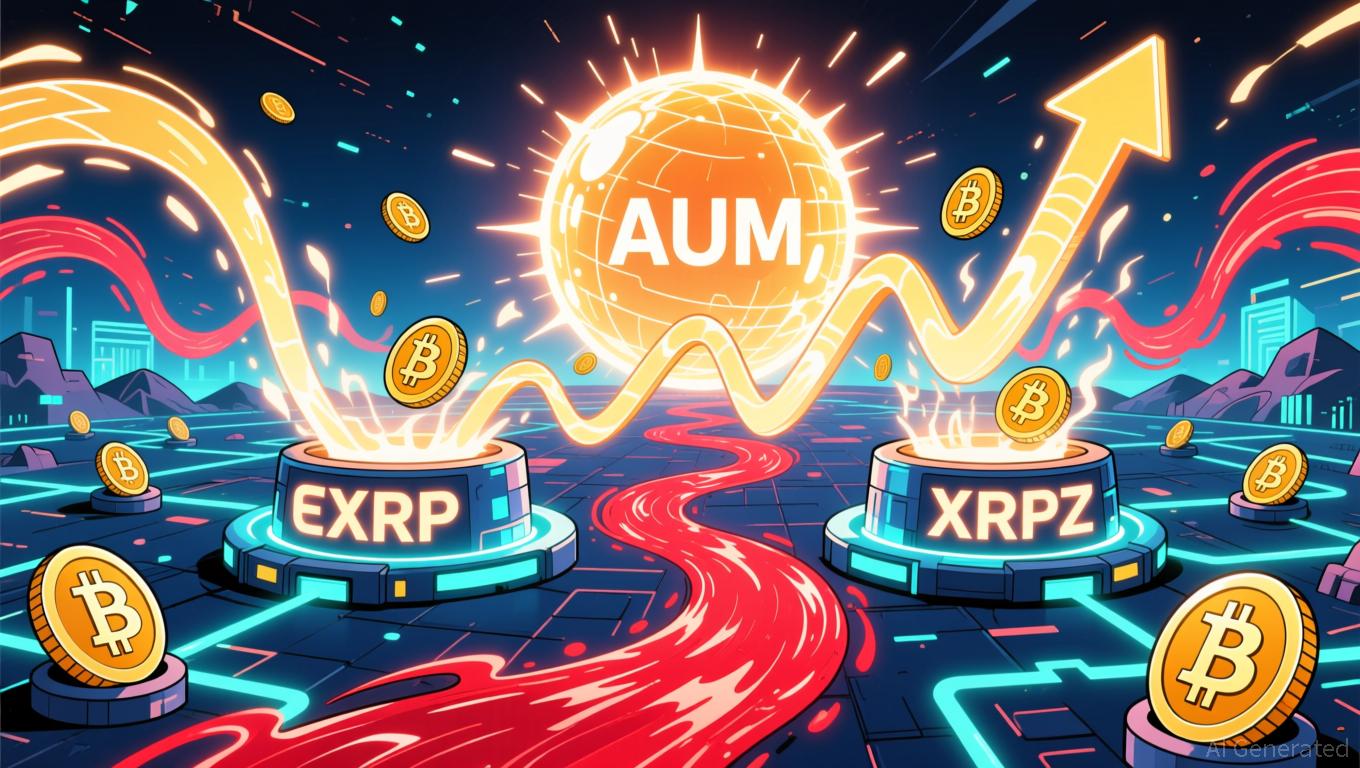XRP News Today: XRP ETF Inflows Surpass Bitcoin Withdrawals Amid Changing Institutional Investment
- XRP ETFs absorbed 80M tokens in 24 hours, driven by institutional/retail demand, pushing AUM to $778M and outpacing Bitcoin outflows. - Grayscale's GXRP and Franklin Templeton's XRPZ led with $67.4M and $62.6M inflows, capitalizing on Ripple's $125M SEC settlement enabling spot ETFs. - ETFs pressured XRP's circulating supply, signaling confidence in its cross-border payment utility while technical indicators show cautious price recovery potential. - Market divides persist between ETF liquidity and direct
In just one day, XRP ETFs have accumulated close to 80 million tokens, reflecting a notable increase in both institutional and retail interest that is transforming the altcoin’s market landscape. These swift inflows have driven total assets under management (AUM) to $778 million,

Regulatory developments have played a pivotal role.
Investors remain split on the best way to gain exposure. While ETFs provide ease of access and liquidity,
With XRP ETFs gaining momentum, the altcoin’s price direction will depend on continued inflows and overall market sentiment. As regulatory barriers diminish and institutional involvement grows, XRP’s strengths—like fast, low-cost transactions—could help it secure a leading role in the changing crypto environment.
Disclaimer: The content of this article solely reflects the author's opinion and does not represent the platform in any capacity. This article is not intended to serve as a reference for making investment decisions.
You may also like
Bolivia’s Digital Currency Bet: Navigating Volatility with Stable Solutions
- Bolivia's government permits banks to custody cryptocurrencies and offer crypto-based services, reversing a 2020 ban to combat inflation and dollar shortages. - Stablecoin transactions surged 530% in 2025, with $14.8B processed as Bolivians use USDT to hedge against boliviano depreciation (22% annual inflation). - State-owned YPFB and automakers like Toyota now accept crypto payments, while Banco Bisa launches stablecoin custody to expand financial inclusion for unbanked populations. - The policy faces c

Switzerland's Postponement of Crypto Tax Highlights Worldwide Regulatory Stalemate
- Switzerland delays crypto tax data sharing until 2027 due to ongoing political negotiations over OECD CARF partner jurisdictions. - Revised rules require crypto providers to register and report client data by 2026, but cross-border data exchange remains inactive until 2027. - Global alignment challenges exclude major economies like the U.S., China, and Saudi Arabia from initial data-sharing agreements. - Domestic legal framework passed in 2025, but partner jurisdiction negotiations delay implementation u

Visa and AquaNow Upgrade Payment Infrastructure through Stablecoin Integration
- Visa partners with AquaNow to expand stablecoin settlement in CEMEA via USDC , aiming to cut costs and settlement times. - The initiative builds on a $2.5B annualized pilot program, leveraging stablecoins to modernize payment infrastructure. - Visa's multicoin strategy aligns with industry trends, as regulators and competitors like Mastercard also explore stablecoin integration. - Regulatory progress in Canada and risks like volatility highlight evolving opportunities and challenges in digital asset adop

Bitcoin Updates: Large Holder Liquidations and Retail Investor Anxiety Lead to a Delicate Equilibrium in the Crypto Market
- A long-dormant crypto whale sold 200 BTC after a 3-year hibernation, intensifying market scrutiny over investor sentiment and liquidity shifts. - Bitcoin struggles above $92,000 amid weak technical indicators, mixed ETF flows ($74M inflow for BTC vs. $37M ETH outflow), and diverging institutional/retail behaviors. - Whale activity highlights fragile market balance: large holders accumulate BTC while retail investors liquidate, with over $557M in BTC moved from Coinbase to unknown wallets. - Technical bea